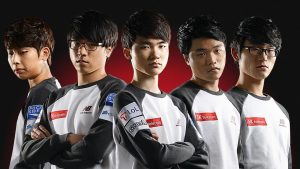I went shopping at downtown during the reading break. To my surprise, Hollister in Vancouver has a totally different image than the ones in China. In China, the store is always crowded and it takes 1 hour or more on average to get into the fitting rooms. It’s always a hotspot for teenagers. But here in Vancouver, there’re not many customers even on weekends. As an employee in Hollister, this was quite a shock for me. Besides the fact that Chinese population is huge, I believe there’re other factors for such a difference.
The main idea is that the ethical dimension of culture (EWC) is different between two countries. EWC is the shared concept of right and wrong behavior in the workplace that reflects the true values of the organization and shapes the ethical decision-making of its members. 1

The EWC in China stores is relatively negative. Discrimination starts from hiring. In China, only teenagers who are tall and skinny will pass the interview. Managers select pretty and hot customers as potential staffs and give them casting cards. Even though people can still apply for the job, the probability of getting admitted is quite small. After employees start working, they’re forced to purchase and wear the new arrivals all the time. Employees are treated as marketing tools. On the other hand, based on my personal experience in the Vancouver store, the staffs there look fit and healthy, and they’re always smiley and willing to offer help. Clearly, working ability and personality matter more.
The difference in EWC brings Hollister profit, but only in short term. It attracts lots of customers who hope to get a casting card. One of my colleagues applied five times because she thought working here was an approval of her appearance. However, many choose to quit after one or two months because of compulsory purchase and indifferent employment relationship. They would start badmouthing about Hollister and the huge turnover rate is definitely a waste of resources as the training period is almost half as long as the working period. Moreover, since employees are mostly high school students with hardly any patience, the customer satisfaction decreases. Nevertheless, the discrimination greatly limits its target market to only young people.
The negative core values of Hollister’s EWC will eventually hurt its reputation and sales in China as they directly affect employees’ attitude while working. In order to improve the situation, Hollister should make the employment relationship better, implement human-based management(stop forcing staffs to buy clothes), change the discriminate value and reverse the current EMC.
Word Count: 425
1. A. Simha and J. B. Cullen, “Ethical Climates and Their Effects on Organizational Outcomes: Implications from the Past and Prophecies for the Future,” Academy of Management, November 2012, pp. 20–34.
2.“Gilly Hicks and Hollister Flagship Store Opening.” Getty Images. N.p., n.d. Web. 01 Apr. 2017
http://www.gettyimages.ca/event/gilly-hicks-and-hollister-flagship-store-opening-143901891?#hot-life-guards-pose-for-the-opening-of-the-gilly-hicks-and-hollister-picture-id143715355


